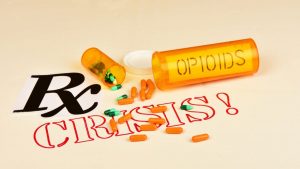What are opioids?
Opioids are painkillers. They act on natural morphine receptors in the brain. Opium, extracted from the poppy plant, is a natural opioid. There are many different synthetic opioids.
| Name | Brand | Equivalent of morphine dose |
| Morphine | Statex | 1 |
| Codeine | Empracet (with acetaminophen) | 0.15 |
| Oxycodone | Supeudol Percocet (with acetaminophen) | 1.5 |
| Hydromorphone | Dilaudid | 5 |
| Meperidine | Demerol | 0.1 |
| Fentanyl | Fentanyl | Special chart needed |
| Methadone | Metadol | Not reliable |
| Tramadol | Tramacet (with acetaminophen) | Not reliable |
| Buprenorphine | Butrans |
See: https://www.cdc.gov/drugoverdose/pdf/calculating_total_daily_dose-a.pdf [1]
I thought that opioids were very effective in treating pain!
That is correct. They constitute a significant advance in modern medicine. For acute pain, opioids are highly effective; nothing works as well as opioids. However, in the long term, they have side effects [2] and risks. Those risks include tolerance (the opioids become less and less effective), addiction (the person takes opioids and becomes dependent, beyond the use for pain), constipation, and bone problems. The regular intake of opioids is associated with car accidents, hip fractures, and problems with newborns if the mother uses opioids.
What is the «opioid epidemic»?
In the 1990s, pharmaceutical companies, motivated by profit, convinced medical experts to advocate for the extensive use of opioids to treat chronic pain. The benefits were overestimated, not supported by evidence, and the risks were ignored. Physicians changed their prescription habits. A black market of prescription opioids sprung up. Now North America is suffering the consequences of too many opioids, including addiction and deaths [3].
Why is it so important to avoid opioids for migraine?
The migraine [4] brain has unique chemical software. Unfortunately, with regular exposure to opioids, its reaction to pain changes, and the migraine [4] threshold lowers. In essence, opioids may relieve pain in the short term but decrease pain tolerance in the long term. There is also a very high risk of medication overuse headache [5]associated with opioids.
If you end up using them ten days a month or more, it is time to talk to your doctor about other alternatives for your migraine.
People with migraine should be aware that some combination analgesics in Canada that are available without a prescription contain small amounts of codeine (Tylenol #1, 2, 3) and the above recommendations apply to those as well.
Canadian Fact on opioids: over-the-counter access puts the population at risk
In many countries, especially in Europe, opioids are not available without a medical prescription. In Canada, combination analgesics may contain smaller doses of codeine. Tylenol 1s and 2s are in this category. The dose in one pill might be low, but many patients may use multiple tablets daily on a regular basis. Recent Canadian research suggests that 18% of Canadians with migraine use opioids, which is worrisome. Read more about the opioid crisis in Canada. [6]
Read more about the opioid crisis in Canada. [6]
Opioids work for me, and they seem to be my only option. What should I do?
Medical guidelines for migraine attacks recommend using NSAIDs (anti-inflammatories) and triptans [7] as the first-line treatments (See this post [8]). Gepants have recently been introduced as acute treatment options [9]. Some individuals cannot take triptans due to a history of vascular problems or NSAIDs because of gastrointestinal issues. Furthermore, while some may not find relief with a specific triptan, it’s important to note that multiple triptans should be tried before determining non-responsiveness, given the varied responses among individuals. Gepants are now available [9], though they might not be covered by insurance. Opioids should only be considered as a last resort for treating migraines, both acutely and for prevention. Ideally, this decision should be made in consultation with an experienced healthcare provider, not just a primary care provider.
I’m treated like a drug addict and it makes me feel terrible
If your physician is cautious about prescribing opioids, it is a good sign and an appropriate evidence-based medical practice. Treating you as a drug addict (assuming addiction, making you feel judged) is not good medical practice. If you feel stigmatized and unduly judged, speak up and if necessary seek another opinion. If you feel like you have an addiction issue, seek help [10] (https://www.ccsa.ca/opioid-resources [6]).
REFERENCES
Tepper SJ. Opioids should not be used in migraine. Headache. 2012;52 Suppl 1:30-4.
Buse DC, Pearlman SH, Reed ML, Serrano D, Ng-Mak DS, Lipton RB. Opioid use and dependence among persons with migraine: results of the AMPP study. Headache. 2012;52(1):18-36.
Saper JR, Lake AE, 3rd, Bain PA, Stillman MJ, Rothrock JF, Mathew NT, et al. A practice guide for continuous opioid therapy for refractory daily headache: patient selection, physician requirements, and treatment monitoring. Headache. 2010;50(7):1175-93.
Post#806
